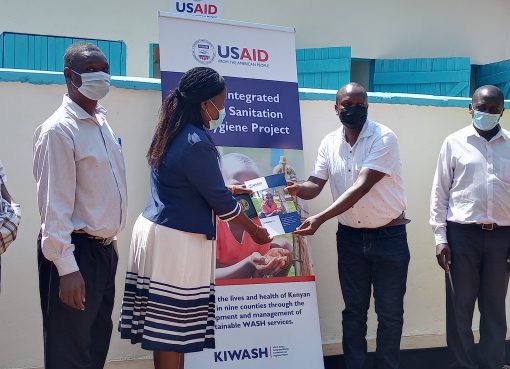The Kenya Revenue Authority (KRA) has rolled out an elaborate tax education programme in schools.
The taxman contends that the initiative that targets high school and college students is meant to inculcate the culture of paying taxes among Kenyans at an early age.
KRA Southern Region Coordinator Joseph Tanui says the new push is meant to improve financial literacy in the learning institutions and teach students the importance of being financially responsible when they finally enter the labour force.
Tanui says taxpayer behaviour is of concern to the taxman as it has been observed overtime that the taxpayer’s compliance can be affected by many factors including education.
He said educating taxpayers about the social and financial impacts of a taxation system can improve their willingness to comply with the taxation policies in place.
“The taxation education we are introducing in secondary schools and tertiary institutions could help create taxpayers who understand their responsibilities as far as the taxation system is concerned,” he said.
He said students need to have life skills when they leave secondary school and a major component of those skills is understanding financial literacy.
Tanui spoke in Kwale County during the launch of the Taxpayer Education Centre of Excellence at the Matuga Girls High School accompanied by John Orioro in charge of Domestic Taxes and Maurice Otieno Manager Tax Base Expansion.
Tanui said KRA Southern region has identified Matuga Girls to be the regional centre of excellence to kick-start the tax education programme but added that eventually one school in each of the six counties in the coastal region will host one such excellence centre.
He said the centres of excellence will be supported by KRA to develop capacity in tax resources and will in turn be mandated to put in place activities aimed at empowering and disseminating tax knowledge among other neighbouring institutions.
“We must inculcate the culture of paying tax actually right from primary school level to college education level,” he said.
He went on “it would be a step in the right direction to introduce the teaching of tax law and tax knowledge in schools.”
Tanui said the programme is a strategy for implementing segmented taxpayer education to enhance voluntary tax compliance and tax base expansion to raise more revenue.
“Expanding the tax base will facilitate the Big Four Agenda of Food security, Affordable housing, Universal healthcare and Manufacturing being championed by the national government,” he said.
Tanui said KRA has a corporate plan of revenue mobilization through tax simplification, technology-driven compliance and tax base expansion.
He said since 2012 at least 25,000 secondary school students and 400 teachers participated in the schools’ outreach programme while 30 tax societies countrywide were established for universities with over 2,000 tax ambassadors being involved.
Tanui said the importance of educating the youth who are the next generation of taxpayers on the significance and the role of remitting their taxes was a means of enhancing their consciousness to adhere to their obligations as responsible citizens in future.
“The programme intends to not only to cultivate a tax paying culture among young people but also influence the society in general to embrace taxation as part of their patriotic role in steering national development” he noted.
The senior KRA official noted that it is of extreme importance that a subject dealing with taxation is included in any new school curriculum that may be introduced to allow learners to have a basic knowledge on the country’s taxation system.
“Taxation will be a major facet of everyday life when these school children become adults and taxpayers in future,” he said, noting that increasing the level of the taxpayer’s knowledge will lead to an increase in the attitude of taxpayers about their tax obligations.
He said KRAs 8th Corporate Plan which runs from 2021 to 2024 envisions increasing the number of active taxpayers from the current 6.1 million to 8.2 million in the next three years.
“It’s clear that the number of Kenyans in the tax bracket form a small portion of the population estimated to be about 50 million people” he said, noting that expansion of the tax base will reduce the tax burden among the current taxpayers by spreading it to more people who will be brought into the tax bracket.
Tanui said this can only be possible through enhancing tax awareness among young people, who are expected to either get employed or get into business so that they may know the importance of paying taxes and the need to avoid being engaged in tax evasion and illicit trade.
He said that KRA is alive to the fact that it is very difficult to shift the tax culture among Kenyans without education at an early age or without citizens voluntarily embracing tax payment.
“The tax literacy initiative in the learning institutions reflects the efforts of KRA to bring out a long-term cultural shift in attitudes and behavior among Kenyans towards taxation,” said Tanui.
Tanui said the most basic function of taxation is to fund government expenditures and help spur economic growth.
Matuga Girls High School Principal Gladys Chivatsi welcomed the tax literacy programme in schools noting that it will in the long run change the negative attitude and perception to paying taxes.
She said the tax education in school will increase students’ sense of responsibility regarding taxes and in the end contribute to the revenue administration increasing in a positive way.
By Hussein Abdullahi



